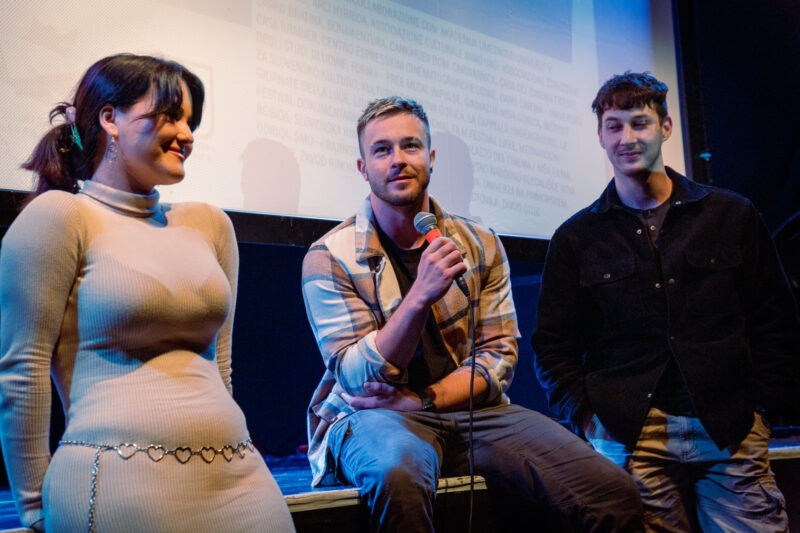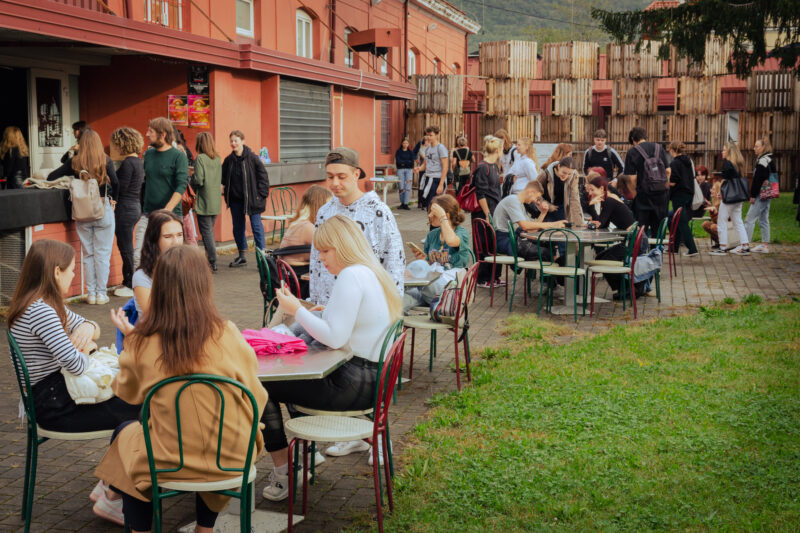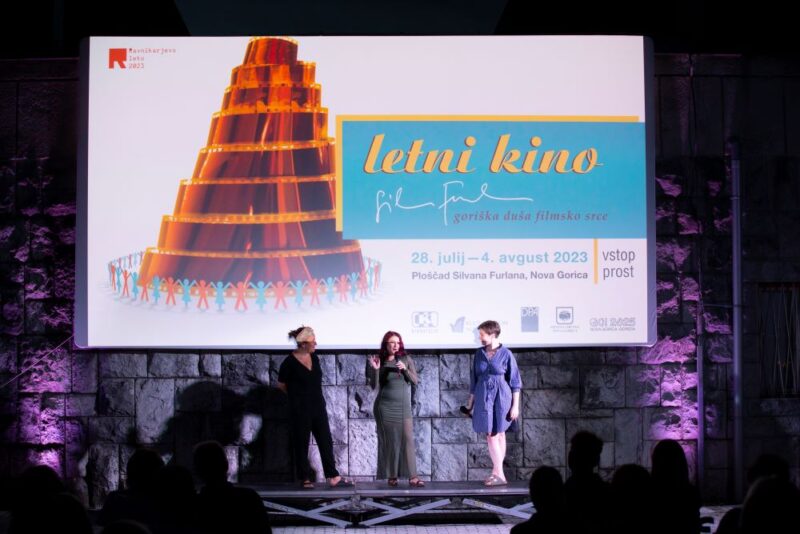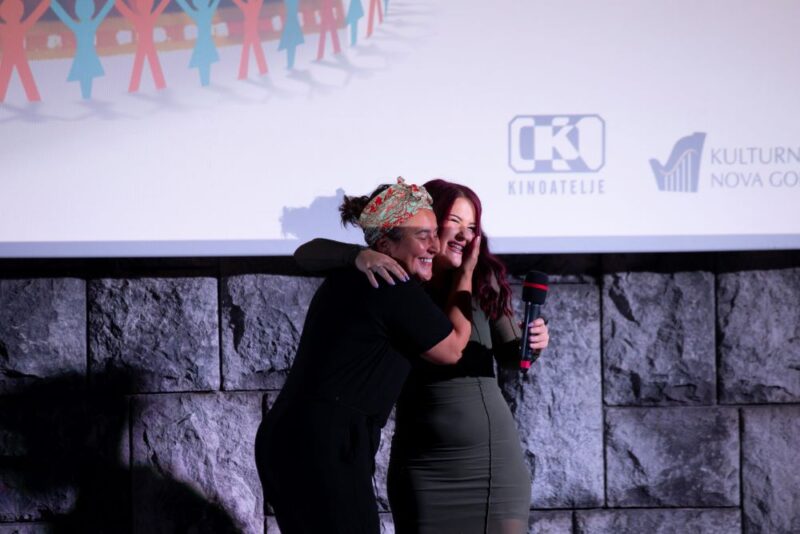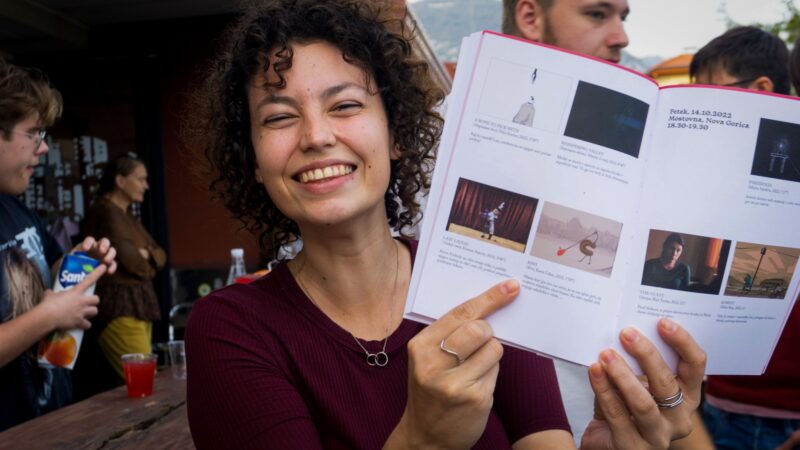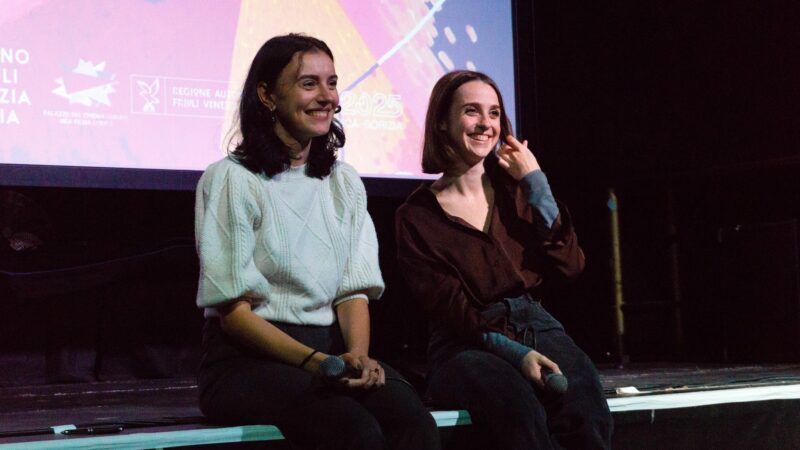For the autumn semester 2023-2024 I was taking part in the Erasmus+ mobility programme, studying Cinema Studies at the Lusófona University in Lisbon, Portugal.
First, I would like to note, that it was my first time in Portugal, so the country with its culture and people was something completely new for me to experience! It wasn’t my first exchange semester abroad, but I was still really curious about the level of education in another country, willing to obtain some new skills and experience in film making and making new connections in the European world of cinema. And here I’d like to state that Lusofona University was a perfect place for me to push my horizons and get a lot of new knowledge about both filmmaking and a new culture.
In this review I would like to share my experience in detail to help other students who are willing to go to this University to make their mobility period in Lisbon as smooth and good as possible. Later in this text I will write about my path in chronological order of me preparing and living through my Erasmus+ semester, in order to make a brief guide for the people interested in Lusofona University exchange programme.
- Looking for accommodation
The first step for me after receiving the confirmation from Lusofona was finding a place to stay for 5 months of my exchange. This period was one of the most stressful times of my mobility, as I heard a lot of information that it is almost impossible to find a place in Lisbon for an acceptable price that would fit all the requirements for a student.
My goal was to find an overall cheaper room somewhere both next to the center of the city and the university (which is located next to Campo Grade metro station). I started looking for a place 2.5 months in advance on both Facebook marketplace and Idealista website (the one that has the most options for the apartments in Lisbon). That wasn’t successful as all the landlords wanted the tenant to move in as soon as possible, and not 2 months after making the agreement, and the competition for the apartments is quite high, moreover they won’t rent you a place if you don’t come for a visit in advance, so it’s always great to have a friend in Lisbon who could schedule a visit and go see the apartment before you arrive to Lisbon.
Because of those reasons, I decided to stop the search and continue looking for the places at least 1 month in advance, but at the end it also didn’t really work, and I could only move in into my room after I arrived to Lisbon and went for a visit (I was lucky to have a friend to stay over for a day, and also getting the room right after the first visit).
Another alert: it is almost impossible to find a room without mold on the walls or windows as the humidity level in Lisbon is really crazy, so everyone should be aware of this, especially the people with allergies or asthma. Also, most of the places don’t have heating inside, so it would be smart to buy an electric heater for the winter period as it can get quite cold in the period from November till April. - Registration process
When I arrived at Lisbon, I didn’t yet have my schedule or any information about the classes I was supposed to attend, so I recommend contacting the Erasmus+ coordinator in Lusofona in advance to get registered for all the courses in advance and not to spend a lot of time during the study period already with registering and changing the subjects. Moreover, the website of Lusofona doesn’t specify the language of the course, so there is a big possibility that the courses a student picks in advance will be only taught in Portuguese. That was the main reason I had to change almost all of my original subjects in the first month of studying here, as you won’t know the language of the course before you physically come to the class, so I had to change about 7 courses out of 5 I was supposed to pick, only one remained the same from the beginning. - Cinema Department at Universidade Lusófona
Talking about the experience of my studies in Lusofona, I would say that the university is perfect for the people who already are experienced in filmmaking and want to realize their own projects, using the equipment and professional support the professors give here. For me the biggest advantage of the school was the amount of professional equipment and special rooms they have. I had to chance to work with all kinds of Arri cameras (Arri Alexa LF, Arri Mini, professional REDs and Sony cameras), building up and operating dollies, operating the focus pull kit and so on. Moreover, we had lots of classes in the professional sound mixing room (all the sound classes each week) and color grading room (there we had a possibility to rent it almost every day to finalize the project). The film department has a lot of classes or special screenings in the cinema that is located on the campus territory and is quite large, bigger than lots of cinemas that I’ve been to in Lisbon. There we also had a possibility to check our projects to see in advance how it will look like on the projectors in other cinemas and listen to the sound as well. So I absolutely recommend this school for people interested in the practical part of filmmaking, such as cinematography, editing and sound design, as here you will have most of the tools to experiment and get the new skills and knowledge from. As for scriptwriters and directors, I am not sure it will be the best pick, as still most of the creative classes are held in Portuguese, or double language, but most of the people taking those courses (at least in my semester) were Portuguese students, so it was almost impossible for people who don’t speak Portuguese to follow those classes and make group exercises, so we decided to change the classes to more practical ones.






- Communication with the professors and final grades
Accordingly to my experience and the experience of most of my Erasmus+ colleagues, studying in Lusofona is not really easy and takes a lot of your free time. All the Erasmus students have the same amount of exercises and treatment from the professors, even though sometimes they are not experiences in the subject of matter as much as the other students on the programme, so it’s unreasonable to expect some special treatment. I had both an excellent and very bad experience with different professors during my mobility period, but overall I might say that it is very important to get to know in advance all the requirements for the final assignments, as the rules of writing, for example, depends a lot on the professor, and most of the time (especially if you take 2nd or 3rd year classes) they don’t specify it in front of the class, as all the Portuguese students already know about it. So it’s very important to clarify everything before getting a negative feedback or be sent to the exam. But at the same time I had a very nice color grading professor that I would like to mention here (Danilo Miranda Cares), that first of all started giving us all the classes in English as soon as he got to know that there are international students at the class, and second of all was helping and supporting all the Erasmus+ students for the period of the whole semester. He also helped me and my production crew to make a short film from the scratch and helped us throughout the way. I also really recommend to take the cinematography and color grading classes with this professor as thank to him I really obtained enough knowledge to operate DaVinci color grading mode and was able to grade a film all by myself, as well as gained a lot of knowledge of different cameras specifications and the ways of composing light for a cinematic image.
For the bad experience I wouldn’t like to mention the names of the professors I didn’t really enjoy the way of teaching, but according to my personal experience there was nothing really bad that could influence my final perception of the faculty, as I was prepared for more demanding or a bit rude professors, but a lot of other Erasmus+ students had bigger problems with some of the professors at the school.
The grading system is also different, and there is a very little chance that a student will get more than 18 (out of 20) for any subject – for all of my classes the highest grade the whole group got was 18 and about 5% of the whole group got a grade of 16 or higher for all the courses I attended. So here I would also note that the professors in Lusofona (and as I heard Portugal in general) are not really generous with giving good grades to the students – only if you do some extraordinary work throughout the semester you will get 18 or higher.
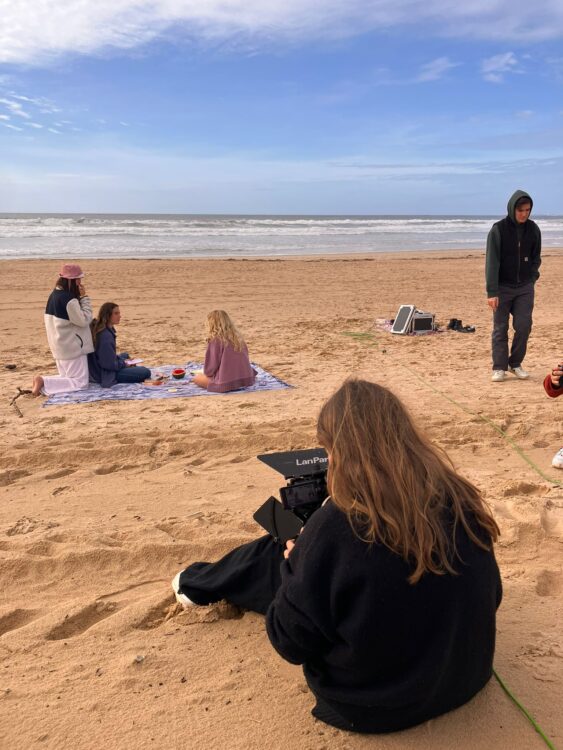
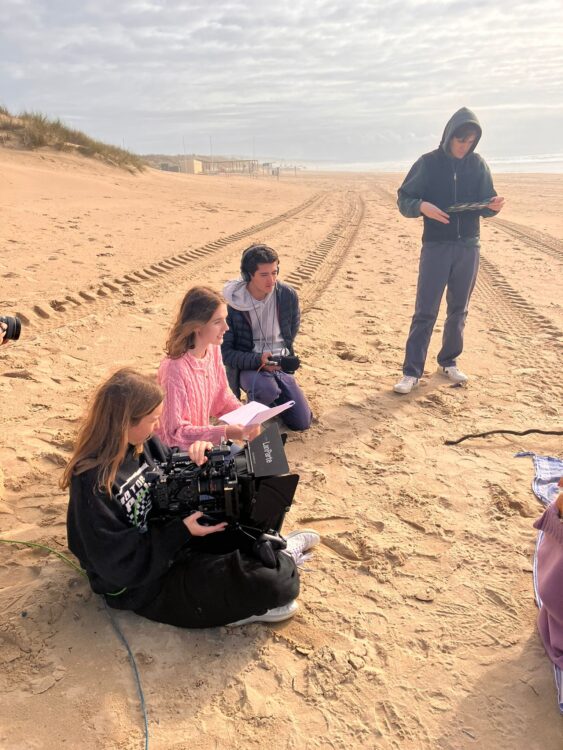
- Out of University activities
It was a very pleasant surprise to get to know that Lusofona University hosts the course of surfing for all the levels, and gives quite a big discount for Erasmus+ people interested in it. I was attending the course for the beginners, that costs 50 euro for 5-6 classes during the second part of the 1st semester. The course itself was organized perfectly, for most of the classes we had a personal instructor that gave us a lot of recommendations at the end as well. This course I recommend to everyone coming to Lusofona and interested in surfing, that was for sure quite a big highlight of the whole mobility period.
There are also a lot of other activities Erasmus+ people can participate in, that are getting introduced to all the incoming students at the beginning of the semester.
Moreover, Lisbon is a very alive, modern city, where you can find anything you want to do, including sport activities, libraries, night life and so on. It has amazingly large amount of all the different cuisines presented in the city, so you can find anything that fits your interest.
Also it is very easy and cheap to travel throughout Portugal, you can always find tickets to Porto, Coimbra or Faro for less than 5 euros one way, if you buy it in advance, plus you can visit Madrid or any other Spanish cities with either plane or FlixBus and sometimes the whole trip costs you less than 20 euros.
- Transportation around the city
Lisbon has quite large transportation infrastructure and it is very easy to commute around the city. The first thing to do upon the arrival is to go to a bigger metro station (for example Cais do Sodre or Marques de Pombal) and apply for a transport card (before you would need to print or take an application form from the stuff of Metropolitan and print your profile picture). The lines of waiting for the applications are always crazy, I think I spent around 3 hours in the queue to apply, but it is definitely worth it, as with the card everyone gets a fixed priced monthly pass option, that without any discounts costs 40 euros for Lisbon Metropolitan area (that covers basically everything you will ever need to commute in Lisbon and around it). Moreover, people under 23 can apply for a discount, and from the year 2024 it is completely free for people under 23 to use this pass. The only thing needed for it is to prove that you are a student at a Lisbon University, and this document can be issued on the NetPa website that is used for all the records of students in Lusofona and Lisbon.
To sum it up, I would like to say that overall my experience on this Erasmus+ exchange was amazing and I enjoyed every bit of it. I am really grateful for the opportunity that was given to me and I can for sure say that I gained plenty of new skills and assembled some connections that can be very profitable for me in the future and the mobility programme exceeded my expectations. Despite all the difficulties that could be met with a different system in another university/city, especially a bigger city like Lisbon and a bigger school like Lusófona, I for sure recommend taking a chance of studying abroad and encourage people who are thinking of a semester in Lisbon to come here and try it themselves!
